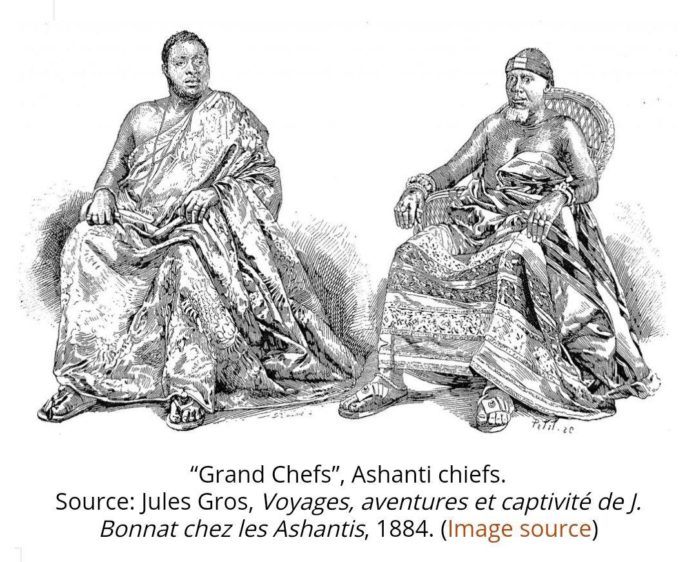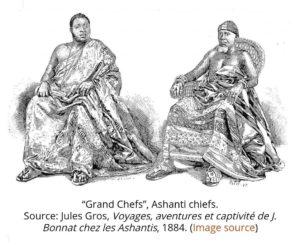Oral histories all agree that the Ashanti were originally part of a unified Akan clan that included the Fante, Wassaw and other Twi-speaking people. But it is in the specifics of its subsequent division that stories begin to diverge.
In one legend, it is Fulani invaders, destroying the Akan’s crops and forcing them to forage for edible plants, that spurs this division. One group collected fan while the other gathered shan in order to survive. They drifted apart and came to be called the Fan-dti and Shan-dti (dti meaning “to eat”).
Another story points to a dispute with a local king. A group of loyal subjects gifted fan to the king out of tribute, while the rebellious subjects attempted to poison him with the deadly herb asun. The groups were then described as the Fan-ti and Asun-ti.
Yet another history describes a different dispute between two factions of the Akan clan. One group left the kingdom and became known as the Fa-tsiw-fu (people who cut themselves from the main body). The Akan who stayed behind rejected a request by the king to restore peace among the two groups. As a result, the remaining people were called the Asua-tsiw-fu (people who refused to listen).
Migration and First Akan States
The ancestors of most coastal peoples, the Ashanti and Fante included, migrated west from lands possibly as far as Lake Chad and the Benue river. After crossing the lower Niger river, they made their way through the forests of modern-day Benin and Togo before reaching the Ghanaian coast.
In these lands, rich in gold and kola nuts, mainstays of trade, the Ashanti, as well as their other Akan cousins, prospered.
By the 16th century, with the affluent trade economy of the region, a number of highly developed Akan states had emerged: The Bono in the north, the Denkyira, Akwamu, Fante and Ashanti to the south. Over the 16th and 17th centuries, the Denkyira quickly grew to dominate and exercise control over the smaller southern states.




